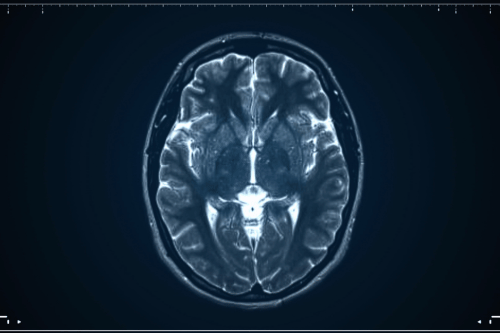Overview of Psychosis in Old Age
Late-life psychosis includes a range of psychotic symptoms seen in elderly patients. These symptoms often involve auditory hallucinations, delusional beliefs, and disorganized thinking. It affects both patients with dementia and those without prior psychiatric history.
Importance of Understanding Late-Onset Psychosis
Psychotic symptoms in old age can signal neurodegenerative disorders or other underlying conditions. Late-onset psychosis differs in presentation, risk factors, and clinical features from early-onset forms. Recognizing these changes is key to early detection and effective treatment.
Medical and Psychiatric Factors
Common Medical Conditions Contributing to Psychosis
Medical illnesses like urinary tract infection, stroke, or brain tumors may cause acute onset psychosis. Delirious patients may show visual hallucinations, agitation, and false beliefs. Drug-induced psychosis from prescription medication or anti-Parkinsonian medication also occurs frequently.
Psychiatric Disorders Influencing Psychotic Symptoms
Psychotic symptoms in older adults may be related to bipolar disorder, psychotic depression, or mood disorders with psychotic features. A history of schizophrenia or chronic schizophrenia increases vulnerability. Patients with schizophrenia can show worsening cognitive impairment and behavioral disturbance in later years.
Differential Diagnosis
Distinct Features of Alzheimer’s-Related Psychosis
In Alzheimer’s disease, patients often experience delusional disorders, visual hallucinations, and paranoid ideation. These symptoms are part of the broader spectrum of disorders associated with cognitive decline. Brain imaging may show cortical atrophy and degeneration.
Characteristics of Dementia with Lewy Bodies
Dementia with Lewy Bodies (DLB) often includes vivid hallucinations, motor symptoms, and cognitive symptoms. Fluctuating attention and psychotic-like symptoms distinguish it from other types of dementia. According to Reference McKeith and international consensus, early signs include REM sleep behavior disorder and extrapyramidal symptoms.
Parkinson’s Disease and Psychotic Symptoms
Parkinson’s disease psychosis often results from anti-Parkinsonian medications. These patients exhibit visual hallucinations and formal thought disorder. Anti-inflammatory drugs or dose adjustments may help reduce symptoms.
Other Potential Causes of Late-Onset Psychosis
Normal pressure hydrocephalus, cerebrovascular events, and degenerative brain conditions may mimic schizophrenia-like psychosis. Symptoms of dementia or delirium must be differentiated from primary psychotic disorders. Behavioral-variant frontotemporal dementia diagnosis also presents challenges in dementia care.
Diagnostic Workup
Role of Neuroimaging in Diagnosis
Brain scans can reveal cerebral atrophy, pathologic findings, and vascular damage. Neuroimaging supports the diagnosis of dementia and helps identify abnormalities in patients. Atrophic brain changes seen in brain images may confirm the presence of a neurodegenerative disorder.
Cognitive Assessments for Differential Diagnosis
Neuropsychological assessment helps evaluate cognitive impairment in individual patients. Tools measure attention, memory, and executive function. These findings assist in distinguishing between psychiatric disorders and neurocognitive disorders.
Integrating Medical and Psychiatric Evaluations
A careful assessment must include blood count, blood pressure, and review of concomitant medications. Both psychiatric history and medical history guide diagnosis and treatment. Collaborative input from neurology and psychiatry improves clinical practice.
Treatment Options
Use of Antipsychotics in Older Adults
Antipsychotic medications are used cautiously in elderly patients. Atypical antipsychotics like risperidone or quetiapine may reduce behavioral symptoms. The International Late-Onset Schizophrenia Group recommends minimal doses for shorter durations.
Risks and Benefits of Pharmacological Interventions
Antipsychotic treatment carries risks like weight gain, extrapyramidal symptoms, and cerebrovascular events. Older adults are more prone to adverse events and anticholinergic symptoms. Careful monitoring and regular clinical assessment are essential.
Alternative Pharmaceutical Treatments
In some cases, anti-inflammatory drugs or mood stabilizers may help reduce psychotic features. Anti-Parkinsonian medication adjustments may ease psychotic symptoms in Parkinson’s patients. Selective serotonin re-uptake inhibitors (SSRIs) are often considered in psychotic depression.
Non-Pharmacological Interventions
Cognitive-Behavioral Therapy Techniques
CBT can help manage delusional beliefs and behavioral disturbance in patients with psychosis. Techniques include identifying false beliefs and replacing them with realistic thoughts. Sessions are adapted for patients with dementia or cognitive symptoms.
Psychosocial Therapy Approaches
Social skills training and structured activities help reduce social isolation and agitation in dementia. Psychosocial interventions offer support for demented patients struggling with paranoia or confusion. Family engagement enhances effectiveness.
Strategies for Managing Paranoia and Delusions
Creating safe, low-stimulus environments helps reduce agitation in dementia. Staff and caregivers are trained to understand body language and behavioral symptoms. Redirecting attention and offering reassurance can ease psychological symptoms.
Ethical Considerations
Decision-Making in Treatment Plans
Respecting autonomy while ensuring safety is crucial in elderly care. Patients with psychosis may have impaired decision-making abilities due to cognitive decline. Legal guardianship or healthcare proxies may be needed in some cases.
Balancing Risks and Benefits in Elderly Care
Pharmacological treatment must weigh benefits against the risk of adverse events. Physicians must document clinical status and clinical response. Regular review of treatment goals helps maintain appropriate care.
Respecting Autonomy and Consent
Obtaining informed consent can be difficult with severe cognitive impairment. Clear communication with families and legal representatives is necessary. All interventions should reflect the best interest of the individual patient.
Comprehensive Management Strategies
Integrating Pharmacological and Non-Pharmacological Approaches
A combined treatment plan can help manage both behavioral symptoms and delusional psychosis. The pharmacologic profile should be adjusted over time based on the patient’s clinical profile. Psychotherapy and environmental adjustments support medication use.
Collaborative Care Models for Elderly Patients
Integrated care models involving psychiatry, neurology, and primary care can improve outcomes. Reference Jeste and Reference Howard support team-based approaches for late-life psychosis. Department of Psychiatry guidance often involves case conferences and longitudinal studies.
Importance of Family and Caregiver Support
Caregivers play a critical role in monitoring symptoms, managing medication, and supporting daily routines. Educating families on the nature of psychotic disorders and behavioral symptoms improves outcomes. Support groups and counseling may reduce caregiver stress.
At Treat MH Tennessee, we specialize in supporting patients with psychosis in later life. Our clinical team understands the nuances of treating elderly patients with psychiatric disorders. If your loved one is experiencing delusional beliefs, agitation, or other symptoms of psychosis, we offer both pharmacological and non-pharmacological interventions tailored to their needs.
Our programs include cognitive assessments, psychiatric evaluations, and personalized care plans. We work with families and medical professionals to deliver comprehensive treatment. Whether managing late-onset schizophrenia, psychotic depression, or psychotic symptoms in dementia, we’re here to help improve the quality of life for every individual.
Contact Treat MH Tennessee today to learn more about how we help older adults experiencing psychosis and related psychiatric symptoms.
FAQ's
Yes, prolonged social isolation can contribute to delusions and paranoia in elderly adults, especially when combined with sensory loss or cognitive decline.
Depending on the cause, such as infection or medication side effects, some cases of late-life psychosis can be reversed with prompt medical intervention.
Subtle changes such as withdrawal, unusual suspicion, or talking to oneself may appear weeks before full-blown psychotic symptoms emerge.
Poor sleep or disrupted circadian rhythms can worsen hallucinations, confusion, and irritability in elderly patients prone to psychotic episodes.











